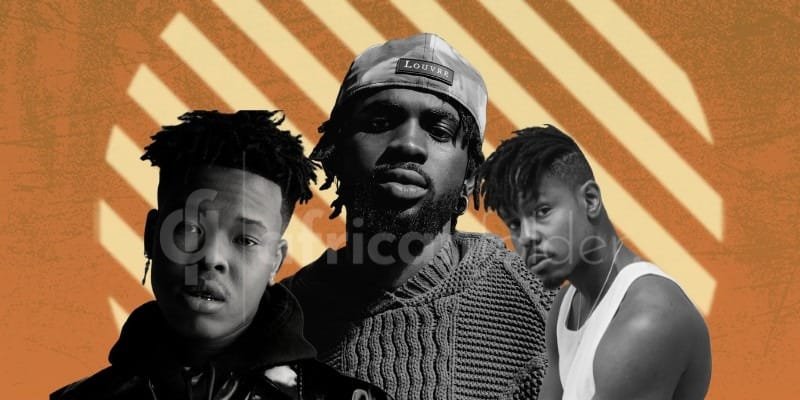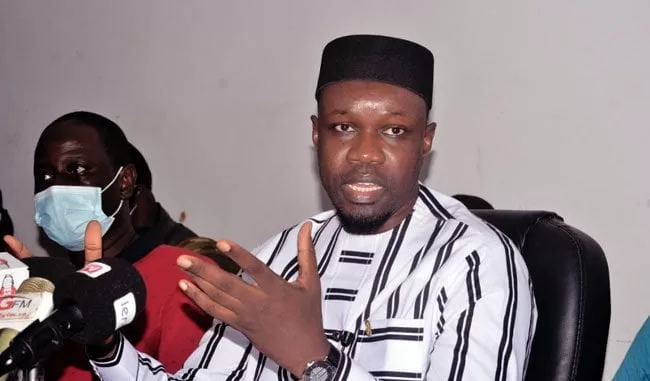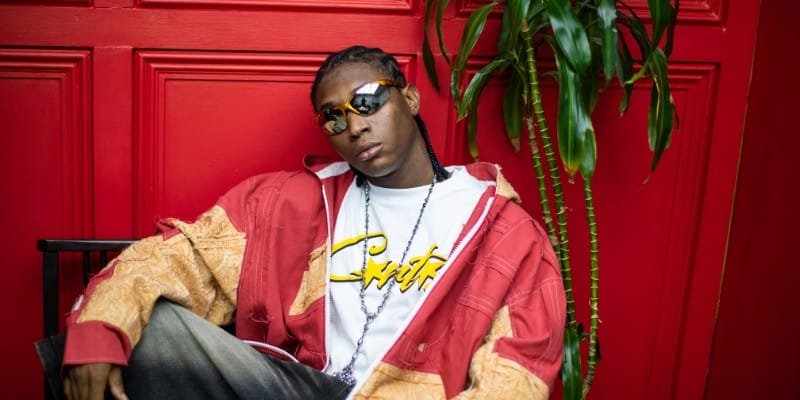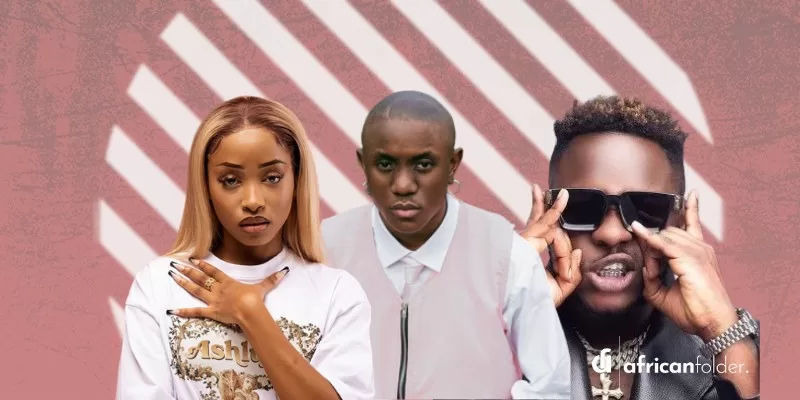Over the years, African hip hop has blown up, producing great artists and commanding audiences in all the regions of Africa and beyond. However, there is still room for the growth of the African industry, which can learn lessons from the current changes in the Chinese hip-hop market and its measures in the spheres of distribution, cooperation, and partnership. The case of China is very informative about the path that brought an initially narrow sub-genre to popularity. Moreover, the recent developments, such as the signing of a deal between UMG and The Rap of China, point in this direction.
According to a 2015 Bloomberg report, African hip-hop is growing increasingly popular in China, particularly in terms of breaking down cultural barriers. Even though they only account for 2% of Guangzhou’s 13 million residents, African migrants have had a significant cultural impact. Most Africans dwell in a district known as ‘Chocolate City,‘ which has the largest African community in Asia. With hip-hop growing as a powerful influence in the city’s cultural scene, this 10-square-kilometre area—which includes parts of Baiyun and Yuexiu—has become a hub for African culture.
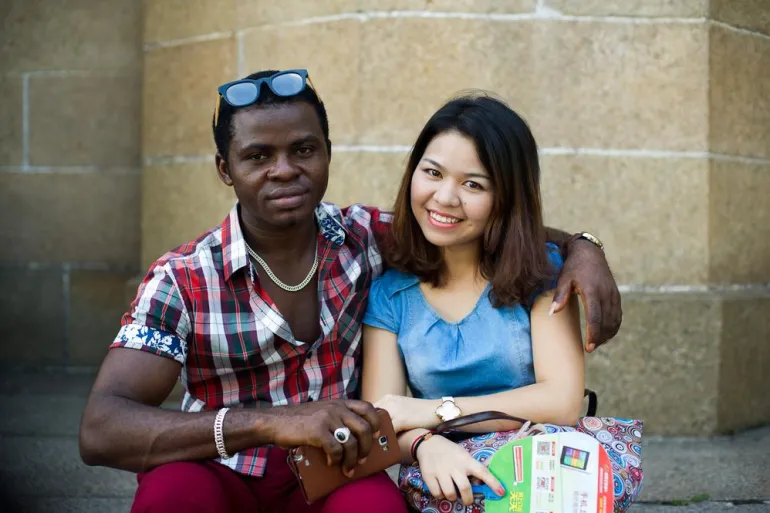
In 2020, African hip-hop was integral to China’s $1.1 billion music industry. The question of Chinese support and awareness of the Black American experience in America and the African experience in Africa and China is not surprising given the connections and influences of Black music and the intricacies of Black culture through such music.
But today, Asian hip-hop is almost as big as their infamous K-pop, while African hip-hop struggles even within the continent’s borders.
Here are a few things African hip hop can learn from China:
1. Leverage Digital Platforms for Global Reach
China, therefore, emphasises the use of online platforms as one of the major lessons learnt in the growth of hip-hop. Plants such as Weibo, Douyin, and NetEase Cloud Music have provided Chinese hip-hop artists with a platform to go straight to their audience without passing through other forms of media such as newspapers or radio. Nevertheless, through these social platforms and digital music services, Chinese hip-hop has been able to find its niche and tap millions of its audience.
To the extent that African hip-hop is yet to fully unlock the potential of streaming services such as Audiomack, Boomplay, and YouTube, this Chinese strategy reinforces the need to be strategic and intentional with engagement of the digital tools. In this manner, African artists can perfect the use of these sites that not only provide exposure to a larger audience but also revenue generation, without necessarily having to beg the gatekeepers for attention. That being said, artists must continue to grow their reach, especially internationally, as with mobile uptake still increasing in Africa, artists can follow China’s digital playbook.
2. Collaborate and Build a Unified Hip-Hop Community
A second aspect of the success of China’s hip-hop is its openness to cooperation within the various subgenres. Hip-hop was developed in China mainly due to the show called The Rap of China, which started in 2017 and served as the platform for cooperation for most of the artists. Competition shows attracted billions of views, which played an essential role in the popularisation of the hip-hop genre within the area.
African hip-hop is often fragmented by regional languages, cultures, and styles. However, a unified front, like the one fostered by The Rap of China, could help the continent’s artists rise together. By working together across borders—through collaborations, festivals, or talent shows—African hip-hop can transcend local divides, creating a pan-African movement that strengthens the scene. Shows like The Rap of China demonstrate the power of artist collectives and cross-promotion, where supporting each other can lead to collective growth.
3. Global Partnerships and Strategic Distribution
A significant lesson for African hip-hop lies in China’s embrace of strategic partnerships with global players. The October 2024 announcement that Universal Music Greater China (UMGC) struck a deal with iQIYI, the producer of The Rap of China, signals a major shift. Under this agreement, UMGC will exclusively distribute new releases from The Rap of China contestants worldwide, offering artists global visibility while helping them forge international collaborations. Additionally, the top three finalists will have the opportunity to visit UMG’s global music labels and studios, further enabling global exposure.
This deal highlights how global partnerships can amplify local talent on a global scale. For African hip-hop artists, securing similar partnerships with major labels or global music platforms could fast-track their entry into the international scene. By aligning with global distribution networks and brands, African hip-hop artists can tap into new audiences while maintaining control over their local narratives.
4. Adapt to Cultural Sensitivities Without Losing Authenticity
Despite its rise, Chinese hip-hop has faced hurdles related to government oversight and censorship. Artists had to learn how to adapt their content to meet cultural and political standards, as seen with regulations placed on The Rap of China six years ago, which restricted certain lyrical content to align with national values. Still, artists managed to find creative ways to express themselves while conforming to these boundaries.
African hip-hop artists who often address themes of political injustice, economic inequality, and street culture can learn from this delicate balance. In regions where political instability or cultural sensitivities exist, African artists can work around limitations while maintaining authenticity in their music. Chinese artists have shown that it’s possible to retain the essence of hip-hop while adhering to local guidelines, a strategy that could benefit African artists aiming for broader acceptance without compromising their creative voice.
5. Monetisation Through Diverse Channels
China has built a sophisticated monetisation model for its artists, including digital streaming, live performances, merchandise, brand collaborations, and even fan subscriptions. African hip-hop artists have often struggled with monetisation due to limited infrastructure and industry support. However, learning from China, artists can diversify their revenue streams by expanding into fashion, brand endorsements, and leveraging digital content platforms for exclusive material.
For instance, launching artist-specific apps, live-streaming performances, and creating fan-based communities with membership benefits could provide new revenue sources for African hip-hop artists. Moreover, merchandise sales, which are underutilised by African musicians, can be a highly profitable avenue, as seen in China’s growing artist-brand collaborations.
6. Integration with Mainstream Media and Global Positioning
Undoubtedly one of the most remarkable aspects of China’s hip-hop explosion is how The Rap of China cemented the style into the entertainment industry. That show propelled the careers of many artists, successfully making hip-hop a household genre throughout China. At least with Universal Music now fully supporting artists for the latest season of Your Face Sounds Familiar, the genre is set for further growth all around the world.
Finally, the relations with other media types can enhance the status of African hip-hop from the subgenre to the mainstream level. Hennessy artistry, showing shows, viral content, and other forms of collaboration with today’s pop artists may help push hip-hop to the forefront of the entertainment scene in Africa. Also, as African rappers integrate international artists into their work, they will be able to represent African culture to the world.
As the hip-hop culture in Africa progresses, China’s modern rise in the international hip-hop arena provides many lessons in digital positioning, forging an international audience and partnership, and engaging diverse cultures differently. Now, thanks to Universal Music Group’s recent collaboration with The Rap of China, there are tremendous opportunities for Chinese hip-hop to go international more than ever before. Being great narrators with a colourful musical history on their continent, African hip-hop artists should therefore emulate similar chances by studying China’s strategic directions. If African hip-hop features more collaborations, if it goes more digital, if it gets global partnerships, it could own not just African hip-hop but hip-hop as a whole.







